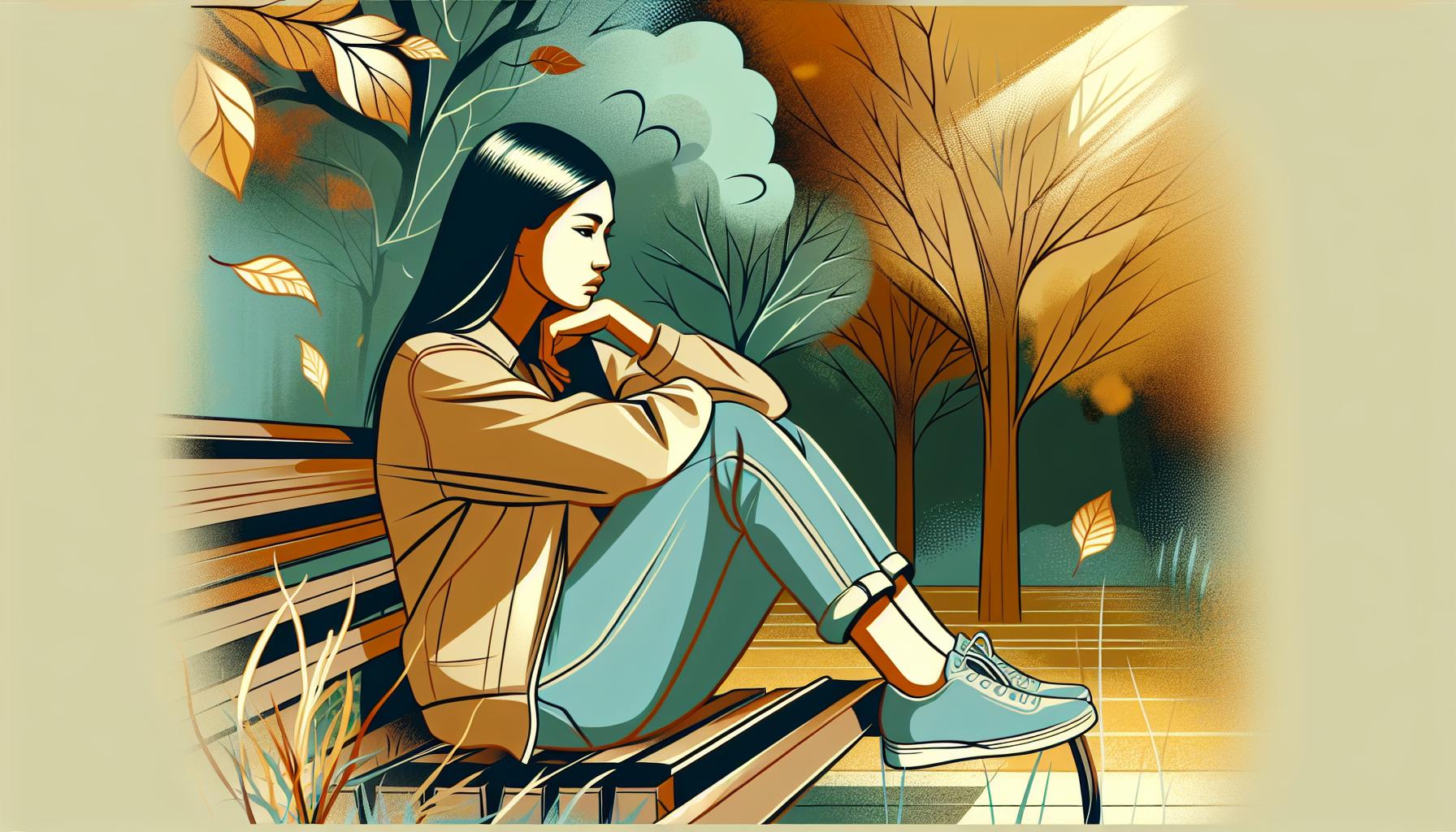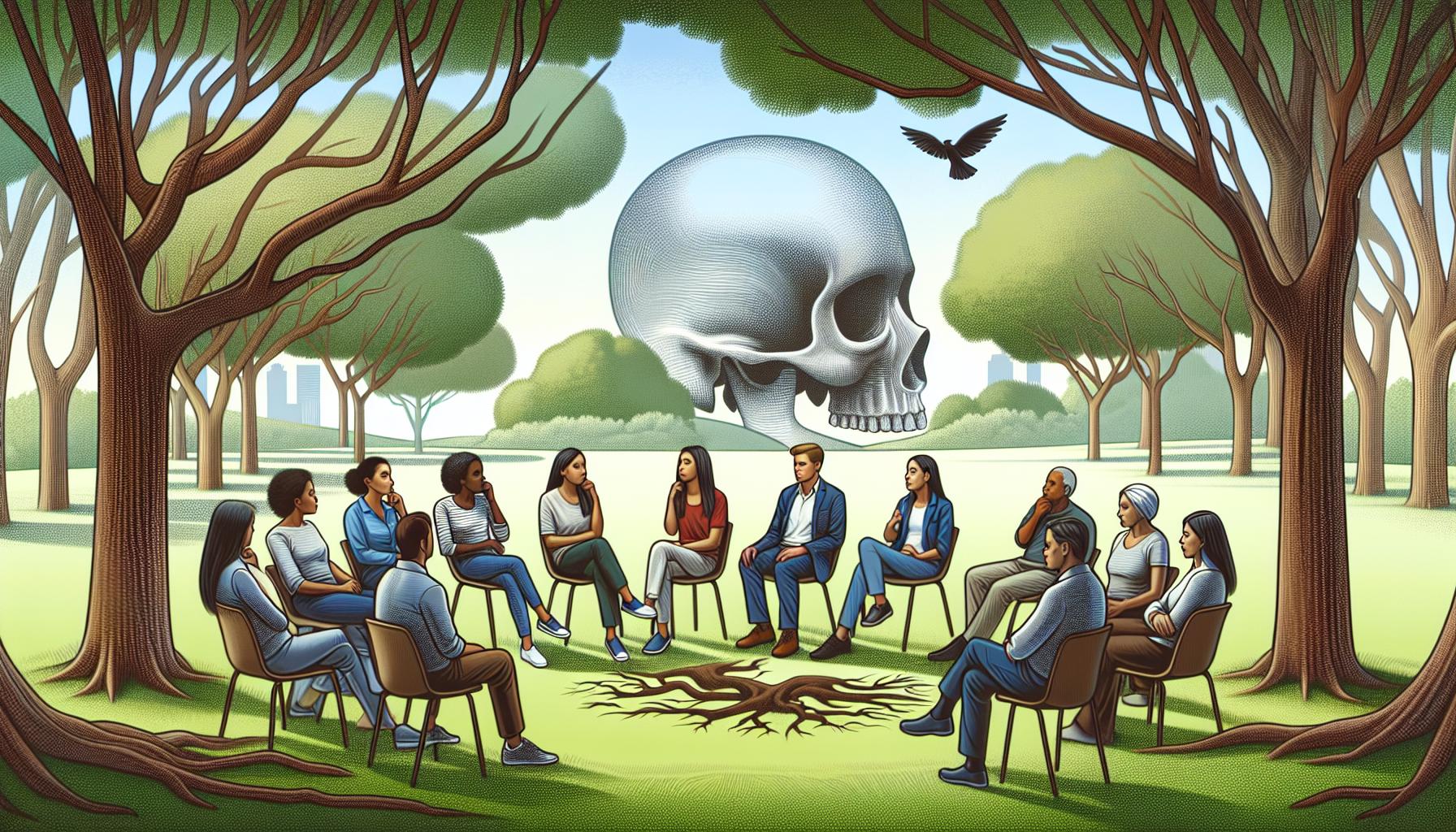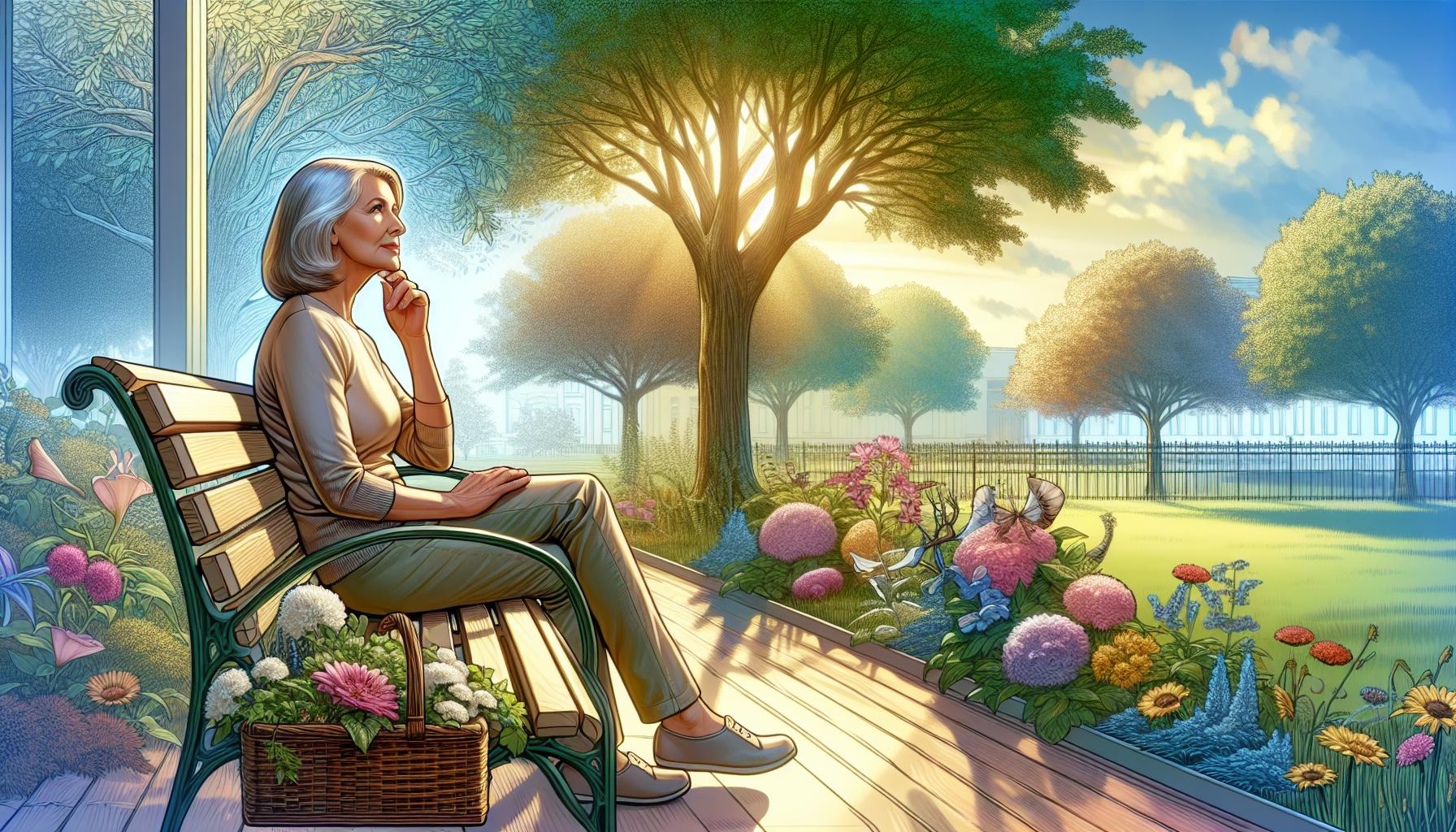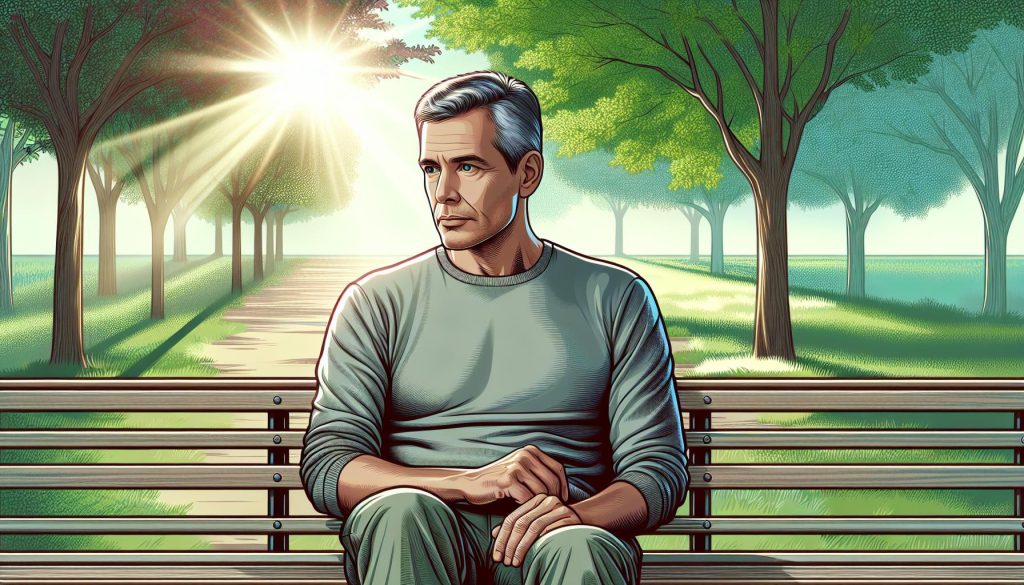Death is an inevitable part of life, yet it remains one of humanity’s greatest fears. The thought of no longer existing, leaving loved ones behind, and venturing into the unknown can be incredibly daunting. It’s a subject that evokes deep emotions and raises profound questions about the meaning of life and what lies beyond.
For many, the fear of death stems from the uncertainty it brings. No one truly knows what happens after we take our final breath, and this lack of knowledge can be unsettling. Additionally, the permanence of death—the fact that we can’t come back once we’re gone—adds to its frightening nature.
Throughout history, people have grappled with the concept of mortality in various ways, from religious beliefs to philosophical musings. In this article, we’ll delve into the reasons behind our fear of death and explore how different cultures and individuals cope with this universal concern.
The Inevitability of Death
Death’s inevitability is a key factor in why it’s so scary. The knowledge that death is inescapable and will eventually come for everyone can be deeply unsettling.
Facing Our Own Mortality
Experiencing the death of a loved one or having a close call with death can significantly increase one’s fear of mortality. These personal experiences bring the reality of death into sharp focus, forcing individuals to confront their own eventual demise. The loss of someone close serves as a stark reminder that death is not just an abstract concept but a tangible event that will one day impact everyone.
Awareness of mortality can also arise through introspection and contemplation of life’s finite nature. As individuals age and witness changes in their bodies and minds, they may become increasingly conscious of time’s passage and the approaching end of their lives. This heightened awareness can intensify fears surrounding death and the unknown that lies beyond.
The Universality of the Fear of Death
The fear of death is a universal human experience that transcends cultures, ages, and belief systems. It’s a fundamental aspect of the human condition, rooted in our instinct for self-preservation and the innate desire to continue existing. This universality underscores the profound impact that death has on the human psyche.
Throughout history, people have grappled with mortality through various lenses, including religion, philosophy, and art. The pervasiveness of death-related themes in these domains reflects the ongoing struggle to come to terms with life’s impermanence. Despite diverse approaches to understanding and coping with death, the underlying fear remains a common thread that unites humanity.
The universality of this fear also highlights the collective need for support, compassion, and open dialogue surrounding death and dying. Recognizing that everyone shares this fundamental concern can foster a sense of connection and empathy, enabling individuals to find solace in the shared human experience.
Psychological Reasons Behind the Fear of Death

The fear of death is a complex and multifaceted phenomenon driven by several psychological factors. Let’s explore some of the key reasons why death can be so scary.
Anxiety and Uncertainty
One of the main drivers of death anxiety is the uncertainty surrounding what happens after we die. The unknown nature of death can create significant anxiety, as individuals struggle to conceptualize their nonphysical existence or the possibility of nonbeing[3][4][5]. This fear is exacerbated by the lack of clear answers to eternal questions of mortality and immortality[3][4].
The finality of death also contributes to this anxiety. The knowledge that death is permanent and irreversible can be deeply unsettling, as it represents a complete end to one’s conscious experience[3][4]. This realization can trigger existential crises and a profound sense of dread.
Loss of Control
Death represents a complete loss of control over one’s life and future. This loss of autonomy can be terrifying, as it contradicts the human desire for self-preservation and the need to feel in charge of one’s own destiny[3][4]. The inability to dictate the circumstances or timing of one’s death can lead to feelings of helplessness and vulnerability.
Moreover, the fear of losing control extends beyond the moment of death itself. The prospect of declining health, losing cognitive faculties, or becoming dependent on others can be equally frightening, as it challenges one’s sense of self-sufficiency and dignity[4].
Separation from Loved Ones
The fear of death is often intertwined with the fear of leaving loved ones behind. The thought of being separated from family, friends, and partners can be emotionally devastating, as it means losing the opportunity to share life experiences, provide support, and maintain close bonds[3][4].
This fear is particularly acute for those with dependents, such as parents with young children or individuals caring for elderly relatives. The worry about how loved ones will cope after one’s death can be a significant source of anxiety and distress[4].
Cultural and Societal Influences

Cultural and societal factors play a significant role in shaping individuals’ perceptions and attitudes towards death, contributing to the fear and anxiety surrounding mortality. These influences vary across different cultures and societies, each with its unique approach to understanding and coping with death.
Religious Beliefs and the Afterlife
Religious beliefs and the concept of an afterlife can greatly impact how individuals view death. In some religions, such as Christianity and Islam, the belief in a judgment day and the possibility of eternal punishment in hell can intensify the fear of death[1]. The uncertainty of one’s fate in the afterlife can lead to anxiety and apprehension about the unknown beyond death.
On the other hand, some religious beliefs, such as the concept of reincarnation in Hinduism and Buddhism, may provide a more accepting perspective on death[2]. The idea that the soul continues its journey through multiple lifetimes can alleviate some of the finality and permanence associated with death, offering a sense of continuity and purpose.
Media Portrayal of Death
The media’s portrayal of death can also contribute to the fear and anxiety surrounding mortality. In movies, television shows, and news reports, death is often depicted in graphic, sensationalized, or traumatic ways[3]. This constant exposure to violent or disturbing images of death can heighten individuals’ apprehension and make the concept of mortality more frightening.
Moreover, the media’s emphasis on youth, beauty, and vitality can create a culture that sees death as a failure or a taboo topic[4]. This reluctance to openly discuss and confront death can lead to increased fear and anxiety, as individuals may feel ill-prepared or unsupported in dealing with the realities of mortality.
[1] Jong, J., Ross, R., Philip, T., Chang, S. H., Simons, N., & Halberstadt, J. (2018). The religious correlates of death anxiety: A systematic review and meta-analysis. Religion, Brain & Behavior, 8(1), 4-20.
[2] Kesebir, P., & Kesebir, S. (2012). The cultural salience of moral character and virtue declined in twentieth century America. The Journal of Positive Psychology, 7(6), 471-480.
[3] Gorer, G. (1955). The pornography of death. Encounter, 5(4), 49-52.
[4] Tradii, L., & Robert, M. (2019). Do we deny death? II. Critiques of the death-denial thesis. Mortality, 24(4), 377-388.
Coping Mechanisms

Despite the fear and anxiety surrounding death, individuals can develop coping mechanisms to help them navigate this challenging aspect of life. These strategies can range from denial and avoidance to acceptance and embracing life.
Denial and Avoidance
One common coping mechanism is denial and avoidance. Some individuals may choose to ignore or suppress thoughts about death, focusing instead on the present moment and the immediate future[3]. This approach can provide temporary relief from the anxiety and fear associated with mortality. However, it’s important to note that prolonged denial and avoidance can hinder personal growth and prevent individuals from fully engaging with the realities of life.
Examples of denial and avoidance:
- Refusing to discuss death or engage in end-of-life planning
- Distracting oneself with work, hobbies, or other activities to avoid thinking about mortality
- Believing that death is something that happens to others, not oneself
Acceptance and Embracing Life
Another coping mechanism involves accepting the inevitability of death and choosing to embrace life fully. This approach requires individuals to confront their mortality head-on, acknowledging that death is a natural part of the human experience[4]. By accepting death, individuals can shift their focus to living a meaningful and fulfilling life, cherishing the time they have with loved ones and pursuing their passions.
Strategies for accepting death and embracing life:
- Engaging in open and honest conversations about death with family and friends
- Reflecting on personal values and priorities, and aligning one’s actions with them
- Practicing gratitude and mindfulness, appreciating the present moment
- Seeking support from loved ones, mental health professionals, or spiritual leaders when grappling with the fear of death
By developing healthy coping mechanisms, individuals can better manage their fear of death and cultivate a more positive outlook on life. It’s important to remember that everyone’s journey is unique, and what works for one person may not work for another. Ultimately, finding a balance between acknowledging the reality of death and embracing the joy and beauty of life can help individuals navigate this complex and deeply personal aspect of the human experience.
The Positive Side of Confronting Death

While the fear of death is a universal and deeply rooted emotion, confronting mortality can also lead to positive outcomes. By acknowledging the finite nature of life, individuals may be inspired to live more fully and meaningfully.
Appreciating the Present Moment
The awareness of life’s impermanence can serve as a powerful reminder to cherish the present moment. When people recognize that their time is limited, they’re more likely to focus on the here and now, rather than dwelling on past regrets or future worries. This mindset shift can lead to a greater appreciation for the simple joys and beauty found in everyday life, such as spending quality time with loved ones, engaging in hobbies, or savoring a breathtaking sunset.
Moreover, confronting mortality can foster a sense of gratitude for the gift of life itself. Each day becomes an opportunity to make the most of the time we have, leading to a more intentional and mindful approach to living. By embracing the present moment and expressing gratitude for the blessings in our lives, we can cultivate a deeper sense of contentment and fulfillment, even in the face of our eventual demise.
Finding Meaning and Purpose
Grappling with the reality of death can also inspire individuals to reflect on their values, passions, and the legacy they wish to leave behind. When faced with the knowledge that life is finite, people may feel compelled to pursue their true calling, follow their dreams, and make a positive impact on the world around them. This introspection can lead to a renewed sense of purpose and a commitment to living a life aligned with one’s core beliefs and aspirations.
Furthermore, the awareness of mortality can motivate individuals to prioritize meaningful relationships and connections with others. Recognizing the fleeting nature of life may encourage people to mend broken bonds, express love and appreciation more freely, and invest time and energy into nurturing the relationships that matter most. By fostering deep, authentic connections with others, individuals can create a sense of belonging and find comfort in the knowledge that their life has touched and enriched the lives of those around them.
In essence, confronting death can serve as a catalyst for personal growth, self-reflection, and a renewed commitment to living a purposeful and fulfilling life. By embracing the reality of our mortality, we can cultivate a greater appreciation for the present moment, pursue our passions with renewed vigor, and invest in the relationships and experiences that bring us joy and meaning. While the fear of death may never fully dissipate, learning to confront and accept our mortality can ultimately lead to a more authentic and enriching existence.
Conclusion
The fear of death is a universal and deeply personal experience that touches every human life. It’s rooted in our instinct for self-preservation and the emotional turmoil associated with the idea of non-existence. While this fear can be overwhelming, it also has the power to inspire individuals to live more fully and meaningfully.
By developing healthy coping mechanisms, engaging in open conversations about mortality, and reflecting on personal values, people can learn to navigate this fundamental aspect of the human experience. Ultimately, confronting the fear of death can lead to personal growth, a greater appreciation for life, and a more profound connection with others.



